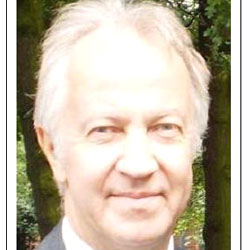Matchfixing – Sport has been too complacent for too long – Keir Radnedge
February 7, 2013
For those in the sports industry who attend anti-corruption conferences regularly the burden of the Europol message about football matchfixing was not a new one.
The statistics released by Rob Wainwright, head of the European police agency, were bleak.
Europol’s focus of a two-year co-ordination exercise codenamed Operation Veto fell on 425 suspects (officials, players, fixers), 380 matches (including World Cup qualifiers and Champions League ties) and 15 countries in Europe alone (plus another 300 matches worldwide).
Responsibility remains fixed firmly on the criminal betting rings organised out of
The highest bribe paid, as far as Europol knows, was €140,000 to fix one game. Payments of up to €100,000 per match were not uncommon
This may be considered barely the tip of the worldwide iceberg for anyone who has heard the apocalyptic warnings of Chris Eaton, in his roles first as FIFA head of security now with the Qatar-based ICSS think-tank.
And there is more:
Every other day, it appears, some new worm of deception is uncovered wriggling in the murky depths of the Italian football underworld.
The Europol message, if anything, was simplistic. The criminality Wainwright revealed concerned ‘only’ the fixing of matches.
Wainwright did not seek differentiation between spot-fixing football and arranging the outcome of a game: one is much easier and much cheaper [as proven within cricket].
Nor did Wainwright take, at this stage, the scariest leap of all which is the use of sport – through criminally-funded businesses – for international money-laundering. Some of the posited figures from Interpol make the notorious matchfixer Dan Tan and his ilk look like bit-players.
This is not a case of football being especially vulnerable, compared with other professional sports; it’s just that football generates more revenue than all the other sports put together.
Invert the old
Sport was too complacent for too long, certainly.
Just as cycling and athletics – to name but two – are always running to try to keep within sight of the dope cheats so football will always be running to try to keep up with the matchfixers.
After all, a match hasn’t been fixed until it’s taken place. That is the gift which keeps giving both for bookmakers and for gamblers operating legally and illegally.
One particular lesson should stand out and it concerns the link between sport and gambling.
The lure of a bet was one of the original creative driving forces in the development of horse racing, boxing, and a number of other sports. Today, football lends itself to the betting industry with a unique synergy for all the obvious reasons.
Back in the inter-war years the English football authorities were so angry at the money being generated by the pools companies that they kept the fixture lists secret until within a day of the games.
In time football and betting reached a pragmatic compromise. A slice of betting income was paid to football for fixture access. But, down the years since then, the relationship become football and the betting industry has become too cosy.
Hence, online betting companies can now be found buying advertising space around the pitches and sponsor the players’ very shirts. The subliminal perception is that football and betting are good for each other and the best of friends.
That should not be the case.
Have you read the book or seen the film Life of Pi? The man and the tiger co-exist in a state of permanent, wary alert. So football should treat its relationship with betting.
FIFA president Sepp Blatter is fond of describing football as a victim of the “little devils of society.”
The power of the bet is not a little devil.
Keir Radnedge has been covering football worldwide for more than 40 years, writing 33 books, from tournament guides to comprehensive encyclopedias, aimed at all ages.
His journalism career included The Daily Mail for 20 years as well as The Guardian and other national newspapers and magazines in the UK and around the world. He is a former editor, and remains a lead columnist, with World Soccer, generally recognised as the premier English language magazine on global football.
In addition to his writing, Keir has been a regular analyst for BBC radio and television, Sky Sports, Sky News, Aljazeera and CNN.
Keir Radnedge’s Twitter: @KeirRadnedge
{jcomments on}



